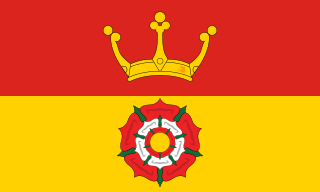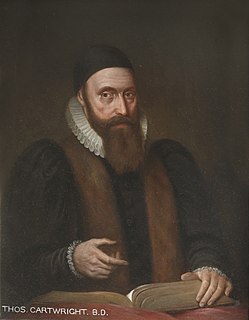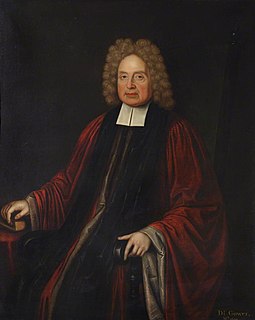Life
He matriculated as a sizar of Trinity College, Cambridge, in May 1574, was elected scholar, and in 1579 proceeded B.A. [1] He was elected a fellow on 2 October 1581, and commenced M.A. in 1582. On 8 January 1587 he preached an inflammatory sermon at Great St. Mary's, Cambridge, against church music, gambling, "dumb dogs" and mercenary ministers, and the celebration of Christmas. For this sermon he was convened before the vice-chancellor and heads of colleges. He afterwards made a public explanation, denying the particular application of the passages excepted against.
At Trinity College, Dublin and the University of Cambridge, a sizar is an undergraduate who receives some form of assistance such as meals, lower fees or lodging during his or her period of study, in some cases in return for doing a defined job.

Trinity College is a constituent college of the University of Cambridge in England. With around 600 undergraduates, 300 graduates, and over 180 fellows, it is the largest college in either of the Oxbridge universities by number of undergraduates. In terms of total student numbers, it is second only to Homerton College, Cambridge.

Christmas is an annual festival commemorating the birth of Jesus Christ, observed primarily on December 25 as a religious and cultural celebration among billions of people around the world. A feast central to the Christian liturgical year, it is preceded by the season of Advent or the Nativity Fast and initiates the season of Christmastide, which historically in the West lasts twelve days and culminates on Twelfth Night; in some traditions, Christmastide includes an octave. Christmas Day is a public holiday in many of the world's nations, is celebrated religiously by a majority of Christians, as well as culturally by many non-Christians, and forms an integral part of the holiday season centered around it.
He proceeded B.D. in 1589, was created D.D. in 1595, and was in December 1596 an unsuccessful candidate for the Lady Margaret Professorship of Divinity in his university, receiving twelve votes, while twenty-eight were recorded for Thomas Playfere. On 9 April 1597 he was elected a senior fellow of his college. On 5 November 1600 he was collated to the prebend of Milton Manor in the cathedral of Lincoln; he also held the rectory of Meon-Stoke in Hampshire.
The Lady Margaret's Professor of Divinity is the oldest professorship at the University of Cambridge. It was founded initially as a readership by Lady Margaret Beaufort, mother of King Henry VII, in 1502.
Thomas Playfere was an English churchman and theologian, Lady Margaret's Professor of Divinity at Cambridge from 1596.

Hampshire is a county on the southern coast of England. The county town is the city of Winchester. Its two largest cities, Southampton and Portsmouth, are administered separately as unitary authorities; the rest of the county is governed by Hampshire County Council.
Gray succeeded Anthony Wotton as Gresham professor of divinity, resigning before 6 July 1604. His death took place in the same month. He left money to Trinity College to build a pulpit, and to Gresham College a piece of plate to be in common among all the readers. The lectures which he had read at Gresham College he left to William Jackson, minister of St. Swithin's, London; they do not appear to have been printed.
Anthony Wotton was an English clergyman and controversialist, of Puritan views. He was the first Gresham Professor of Divinity. Christopher Hill describes him as a Modernist and Ramist.








